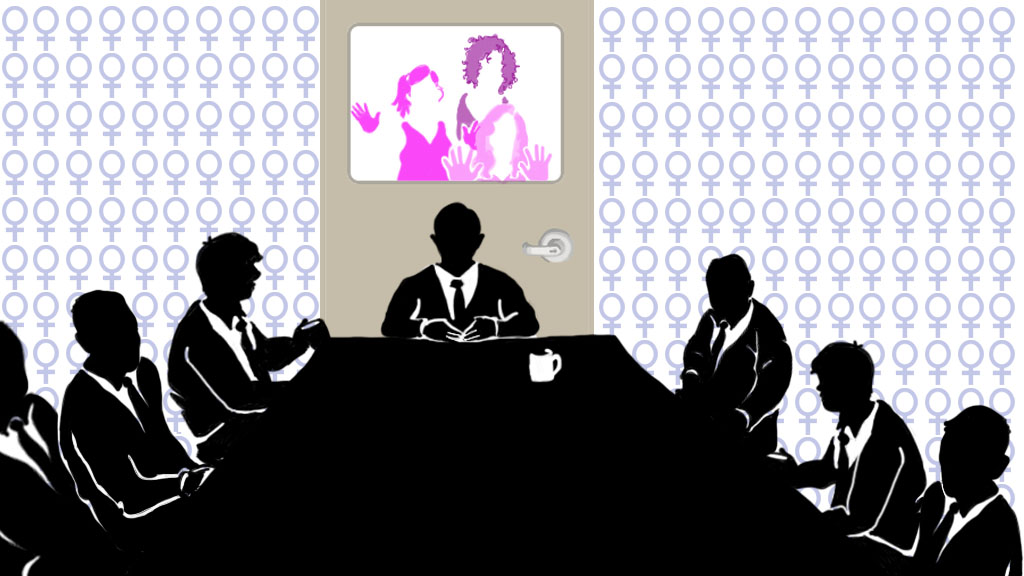The Men’s Gender Equality Conference
by Nicole Howley | published Oct. 14th, 2014
“We want to end gender inequality, and to do this, we need everyone involved,” said U.N. Goodwill Ambassador Emma Watson in her speech to the United Nations on September 20. “…We want to try to mobilize as many men and boys as possible to be advocates for change.”
Despite Watson’s powerful statements about inclusive discussion on gender inequality, Iceland’s representatives appear to have only paid attention to her invitation to men.
On September 29, Iceland’s Foreign Minister Gunnar Bragi Sveinsson announced plans formed in conjunction with Suriname to “convene a ‘Barbershop’ conference in January 2015 where men will discuss gender equality with other men, with a special focus on addressing violence against women.” Sveinsson touted that “This will be a unique conference, as it will be the first time at the United Nations that we bring together only men leaders to discuss gender equality.”
The decision to host a men-only conference on women's equality elicited a strong negative reaction from many. According to Newsweek, "Sveinsson said the criticism hasn’t surprised him and speculated that the backlash was a result of the idea of having a men’s only conference being 'quite new.'" I am sad to say, however, that Sveinsson's statement – if not the entirety of his expressed opinion on the matter – is complete bull.
This is far from the first time that women have been excluded from discussions directly affecting them in the United Nations or the United States, and the trend is frankly insulting.
One example from just a few years back was the House Oversight and Government Reform Committee hearing titled “Lines Crossed: Separation of Church and State. Has the Obama Administration Trampled on Freedom of Religion and Freedom of Conscience?” which focused on the administration’s mandate on birth control coverage. No women were included on the first five person panel, which lasted three hours. Two women were included in the second panel, both of which spoke against the mandate. In the end, two out of 10 witnesses allowed to testify isn’t a much better representation of the approximately 50/50 population distribution of men and women, especially if they and the rest of the panel are against contraception; but that’s beside the point.
Sandra Fluke, the previous president of Georgetown University’s Reproductive Justice group and a third year law student at the time, was presented as a potential panelist for the hearing as well, but was excluded from the panel based on technicalities and judgments on her lack of expertise. Eventually, the House Democrats heard her testimony, not at the hearing itself, but at a separate hearing in front of the House Democratic Steering and Policy Committee.
After finally hearing some female perspective on the issue, representing the women who support contraception access, Rush Limbaugh – one of the classiest gentleman of our time – proceeded to call Fluke a slut and a prostitute on his radio show, in addition to saying that if tax payers are going to pay for her birth control, they should also get to see videos of the sex she has.
Anyway, my point is that women are constantly excluded from important conversations about issues affecting them, whether they are barred from talking altogether or publicly shamed for saying anything at all. I hope that Iceland’s barbershop conference will not spiral as completely out of control as Limbaugh, but the exclusion of women in a conversation about gender inequality seems just as ridiculous as a panel that excludes women from a conversation about birth control.
I’m glad that Iceland is trying to get men involved, because men are important players in the fight for gender equality; however, I want to caution them and any other men out there who want to discuss gender equality that women are very important players too and they should be included in the conversation.
In Watson-style speak: men, I would like to take this opportunity to extend you a formal invitation to join in the conversations being had about gender equality, and not to take them over and exclude women in the process.



